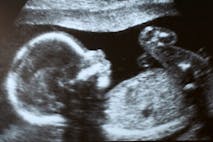
Disability rights groups file lawsuit to stop Delaware assisted suicide law
Angeline Tan
·
Anorexia survivor says she would have chosen assisted suicide – but is glad she couldn’t
A woman who survived anorexia is speaking out against a new unofficial diagnosis that she argues encourages people like her to undergo assisted suicide.
In an op-ed written for Newsweek, Chelsea Roff said that, at her lowest moment of her struggle with anorexia, she was 5’6″ and weighed just 58 pounds. “My skin was yellow from liver failure,” she wrote. “I was unable to stand up, walk, or bathe myself.” She was hospitalized at the time, but nearly 20 years ago, there was no potential of being diagnosed with terminal anorexia.
While the controversial condition is not yet an official diagnosis, it has been floated, including in medical journals.
Roff recoiled at the trend toward labeling people with anorexia as “medically futile” and allowing patients to die under a misguided view of “compassion.” This, according to Roff, is a major problem; if terminal anorexia becomes an official diagnosis, then people like Roff will become eligible for assisted suicide or euthanasia, even though anorexia is a mental health condition which distorts a person’s thinking.
“Even at the height of my illness, I was a convincing narrator of my mental capacity. I was remarkably lucid, yet could not comprehend the risk that starvation posed to my life. One of the most striking neurological effects of starvation is how it distorts your emotional perception of risk and reward. I felt comfort when I was hungry, but apathetic about my failing organs. If I had not been forcibly hospitalized, I would have continued starving,” Roff wrote. “Many doctors had little hope for my recovery. My care team tried everything—psychological therapies, psychiatric drugs, and residential treatment. I was called obstinate, stubborn, intractable, and treatment-resistant. I felt hopeless and despondent, a burden to my family.”
Worst of all, she added, “If the option for assisted dying had been available, I would have taken it.”
After 16 months of treatment, Roff recovered, and now runs a non-profit helping other people with eating disorders. Yet her fear regarding assisted suicide and anorexia is not unfounded.
Article continues below
Dear Reader,
Have you ever wanted to share the miracle of human development with little ones? Live Action is proud to present the "Baby Olivia" board book, which presents the content of Live Action's "Baby Olivia" fetal development video in a fun, new format. It's perfect for helping little minds understand the complex and beautiful process of human development in the womb.
Receive our brand new Baby Olivia board book when you give a one-time gift of $30 or more (or begin a new monthly gift of $15 or more).
READ: Colorado doctor admits to giving suicide pills to anorexia patients
In Belgium, an anorexic woman was euthanized in 2013; the Journal of Eating Disorders has even begun promoting assisted suicide for anorexia victims who feel they can’t continue fighting. A case study from the American Clinicians Academy on Medical Aid in Dying (ACAMAID) “Ethics Consultation Service” likewise promoted assisted suicide for anorexia, and as legalized assisted suicide has spread, more anorexia victims have demanded they be eligible to die, too.
Ultimately, Roff slammed the notion of terminal anorexia, which she said — combined with the push towards legalizing assisted suicide — will only make them more likely to choose death.
“[A] diagnosis of terminal anorexia may gloss over widespread failures in healthcare. Many patients desperately want to recover but never receive adequate treatment,” she said. “Those with the most severe conditions are at a life-threatening disadvantage. Many facilities lack the expertise to manage their complex medical needs, and private centers rarely accept Medicaid. When people do take the brave step of seeking help, they often receive ineffective and unproven treatments.”
She added, “There are no binding standards for eating disorder care. Many centers peddle treatments that look cutting edge, but even at up to $2,000 a day, are only marginally effective. When patients fail to get better they may languish for years in relapse. This makes the slide toward palliative care all the more chilling—the most expensive, hard-to-treat patients can be pushed toward assisted dying, while the system continues to churn out subpar care.”
Live Action News is pro-life news and commentary from a pro-life perspective.
Contact editor@liveaction.org for questions, corrections, or if you are seeking permission to reprint any Live Action News content.
Guest Articles: To submit a guest article to Live Action News, email editor@liveaction.org with an attached Word document of 800-1000 words. Please also attach any photos relevant to your submission if applicable. If your submission is accepted for publication, you will be notified within three weeks. Guest articles are not compensated (see our Open License Agreement). Thank you for your interest in Live Action News!

Angeline Tan
·
Analysis
Angeline Tan
·
Analysis
Cassy Cooke
·
Politics
Madison Evans
·
Opinion
Nancy Flanders
·
Investigative
Carole Novielli
·
Analysis
Cassy Cooke
·
International
Cassy Cooke
·
International
Cassy Cooke
·
Politics
Cassy Cooke
·
Pop Culture
Cassy Cooke
·